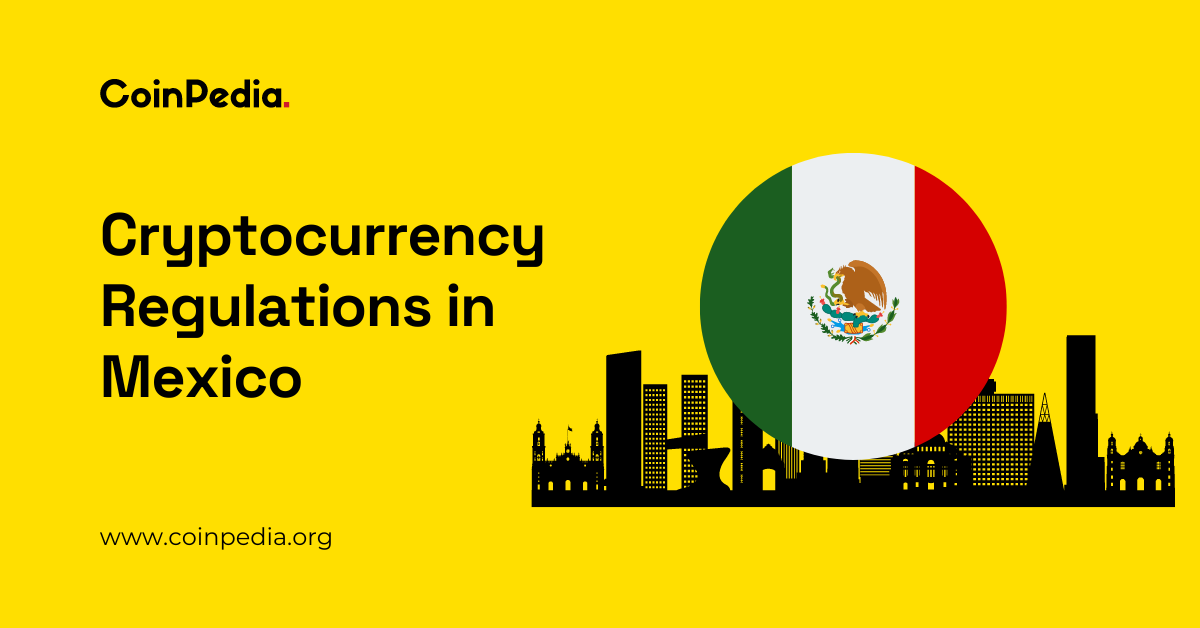
Mexico is one of the first countries in Latin America to enact laws regulating financial technological institutions, also known as fintech law. With no specific cryptocurrency law, Mexico continues to evolve its regulatory systems in 2025, impacting financial institutions and individuals in the crypto space. Since 2018, the Mexican government has legalized virtual assets, including cryptocurrency, through the Fintech Law.
As of 2025, Mexico has not introduced any new crypto-related law; however, it is developing an enhanced framework for fintech and digital assets laws, focusing on consumer protection and financial stability.
| Date | Law/ Regulation | Details |
| July 11, 2024 | Creation of ‘Digital Agents’ | Establishing a new type of banking to publicly offer |
| February 2024 | Bitso proposal | Bitso contributes in shaping the regulatory landscape of digital assets |
| June 7, 2023 | National Code of Civil and Family Procedures | Local government will fully adopt the code by April 1, 2027 |
| April 2022 | Peso Digital Currency | Banxico to soon implement peso digital currency as part of long-term payment strategy |
| February 2022 | Bill to create Central Bank Digital Currency (CBDC) | Senator Kempis set to make Bitcoin legal tender |
| August 2021 | Tightening of AML regulations | Ensuring compliance with the anti-money laundering legal framework |
| June 2021 | Reiterating, crypto is not legal tender | The finance minister warned that crypto is not legal tender, and local financial institutions are not authorized to operate virtual assets |
| July 2019 | New rules for Fintech Law | New rules were introduced for robust crypto regulations |
| March 2019 | Circular 4/2019 | Banxico prohibits banks from directly dealing with virtual assets |
| September 2018 | Blockchain to track public bids | Blockchain-based project to reduce corruption in bidding for government contracts |
| March 9, 2018 | Fintech Law passed | Financial entities, including digital assets, can be authorized by Banxico |
| December 2017 | Proposal of fintech law | The government announced its plan to introduce a fintech law |
| March 2014 | Banxico issued a warning | Banxico warns about the risks of virtual currencies |
The Bank of Mexico is the primary regulator of crypto in the region; Currently, it is focusing on maintaining digital asset transactions and ensuring AML compliance.
Digital currency:
Innovation and Stability:
Mexico has not mandated any specific crypto licenses yet; however, the entities dealing with crypto and other virtual assets must register with the Comisión Nacional Bancaria y de Valores (“CNBV”).
Entities that desire to offer any crypto-related services must comply with anti-money laundering (AML) and other mandatory regulations.
Mexico does not have any specific crypto laws, therefore, the general national tax law applies to it. In 2021, the Mexican tax Ombudsman confirmed that profits from crypto should be treated as income from the sale of goods.
Also read: Crypto Regulations in Canada 2025
Mexico is one of the countries in Latin America that is currently focusing on enhancing the regulatory landscape for cryptocurrency and digital assets in the region. I believe if Mexico maintains this stability of cryptocurrency with the legal framework and boosts the security regulations, then in no time, it will be posing as a crypto hub in the global landscape.
Yes, virtual assets including cryptocurrency are legal in Mexico through its Fintech Law. However, crypto is not considered legal tender and financial institutions need Banxico’s approval for operations.
Profits from selling crypto in Mexico are treated as income from the sale of goods. Individuals are subject to income tax up to 35%, while legal entities face a 30% tax rate.
VAT (16%) applies to services or goods exchanged for crypto, depending on classification. If a crypto transaction exceeds US$12,500, the buyer may be required to withhold 20% and pay it to the tax authority.
The Bank of Mexico (Banxico) is the primary regulator, focusing on digital asset transactions and AML compliance. The Fintech Law also involves other bodies like the Ministry of Finance and Public Credit and the National Banking and Securities Commission.
Banxico is the primary regulator focusing on digital asset transactions and AML compliance. It prohibits banks from direct crypto dealings, but is actively developing a peso digital currency (CBDC) expected by late 2025.
Binance founder Changpeng Zhao returned to the U.S. in February 2026 for the first time…
U.S. spot Bitcoin ETFs are seeing their sharpest pullback of the current market cycle, as…
The White House signaled possible progress in the ongoing fight over stablecoin rewards during its…
On Feb. 19, US spot Bitcoin ETFs saw 166 million dollars in net outflows, marking…
The crypto market may see strong price swings today as Bitcoin and Ethereum options worth…
Enso coin price has exploded higher, doubling in less than 48 hours as momentum traders…